This Homewares Brand Is Redefining Modern Chinese Living
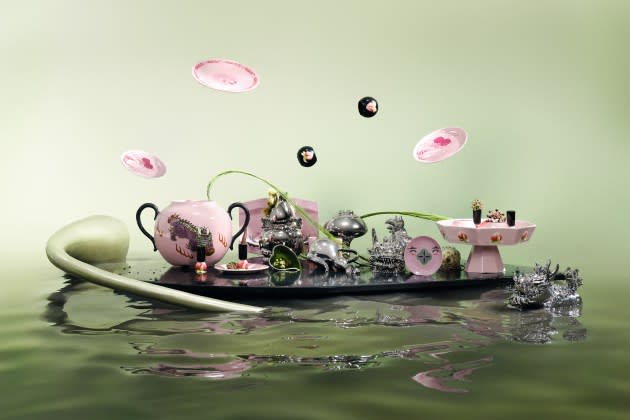
Chinese shoppers are increasingly looking to buy refined items that speak to their cultural identities — so much so that there’s a growing wave of fashion and lifestyle brands seeking to modernize the traditional elements for today’s urban elites.
Xi Xing Le — which roughly translates to “carpe diem” in Chinese, and more specifically means auspiciousness, moving forward and delightful experience — is riding this trend with bright, playful and reasonably priced homewares and furniture fusing traditional symbolism and modern flair.
More from WWD
Bonpoint Opens in East Hampton and The Maidstone Gets a 'Rejuvenated' Menu, Plus Openings Out East
The 22 Best Outdoor Entertaining Gifts for Summer, According to Style Experts
Colin Jones on Her Rise on the Runway and Arriving at a 'Pivotal Moment' in Fashion
Lions and peaches, representing strength and vitality, respectively, in Chinese culture, are the two dominating themes of the brand’s offerings, which include cups, vases, flagons, plates, jars, lamps and candle holders – all done in the form of Kwon-glazed porcelain, a type of overglaze colored porcelain art produced in the Guangzhou region – as well as chairs, screens, cushions, throws, tote bags and phone grips.
Dragon, crane, peach blossom, pine tree and Shouxing, the longevity god in Chinese mythology, symbols can be found across Xi Xing Le’s range as well.
Looking at the bigger picture, the rise of Xi Xing Le and the New Chinese Style movement in fashion dovetail with a relatively recent trend fueled by the Chinese authorities’ efforts to restore traditional culture as a source of soft power against the dominance of Western pop culture.
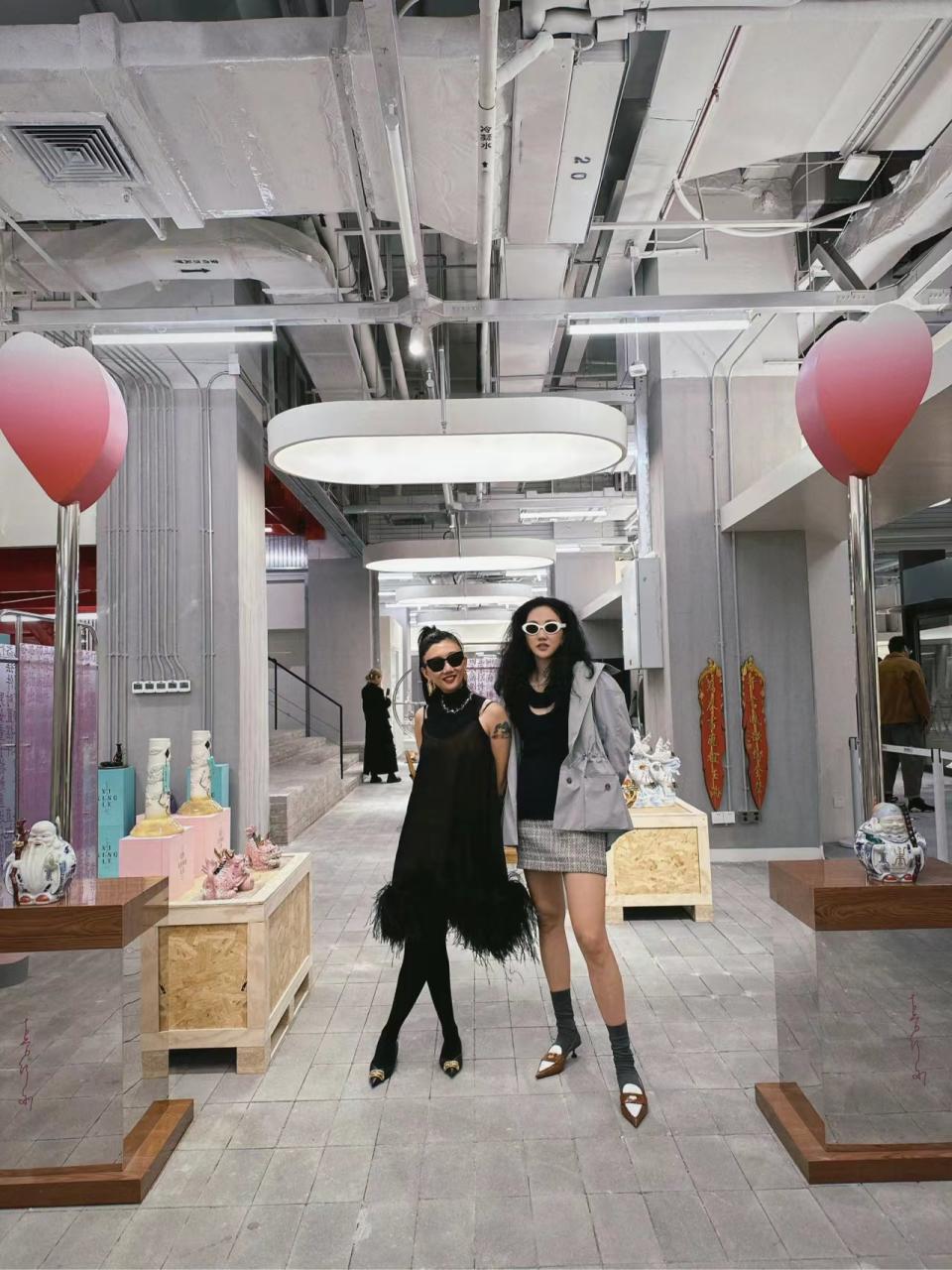
Luo Hui and Wang Jing, who have been running the Taobao-based fashion label Superr for the past decade, founded Xi Xing Le during the height of the Shanghai COVID-19 lockdown in 2022. The brand has attracted a dedicated following and, recently, a landmark collaboration with Zara for the Year of the Dragon.
“The lifestyle sector in China is highly competitive. But at the time, we saw a small gap in the market. I have always liked old objects, and I have always had an interest in interior design, but I couldn’t find things that speak to both the new and the old worlds, or I would have become a consumer, instead of an entrepreneur. Most brands stick to straightforward interpretations of Chinese elements, but we decided to do things our way with a twist,” Wang says.
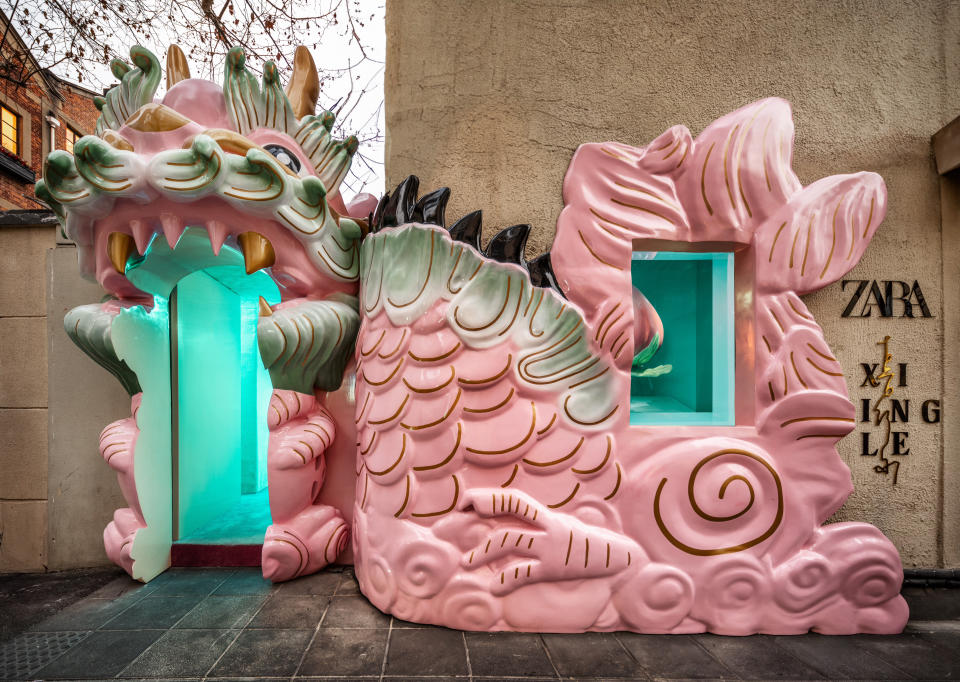
The collaboration with Zara allowed the duo to learn more about elements that may require explanation for those who are unfamiliar with the nuanced symbolism in Chinese iconography.
“We take all the Chinese elements for granted because we live and breathe in it, but when communicating with the Zara team based in Spain for the capsule, we get to understand what’s ticking for them, and why they find our approach refreshing,” Luo says.
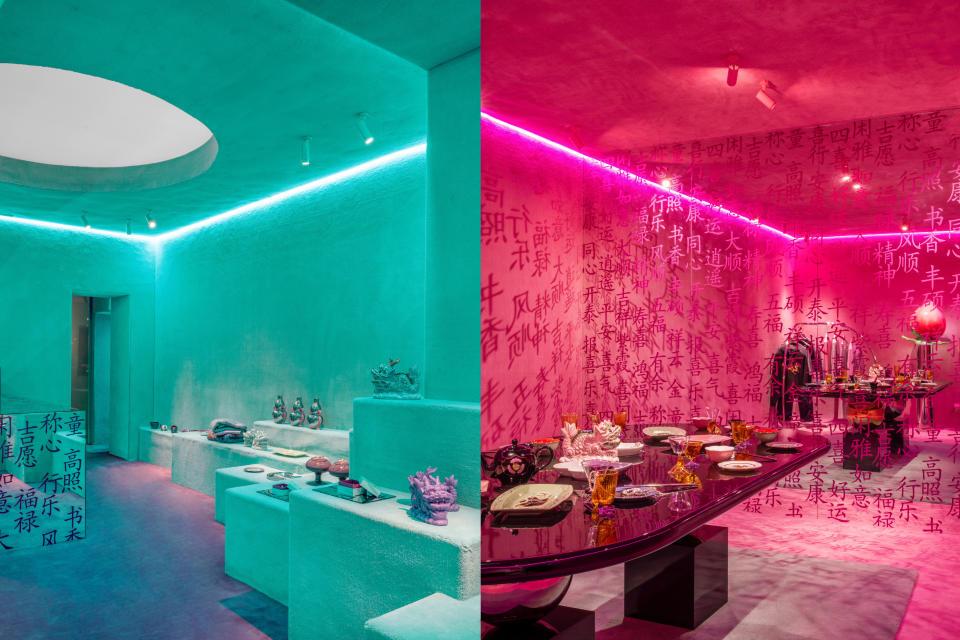
The collaboration’s mascot is a compact, cute pink dragon, and the range includes apparel and homeware, such as gourd-shaped vases, glazed black tea sets, dragon-shaped candles, goldfish candle holders and peach-shaped bonbon jars. To get the word out and promote the Anfu Road pop up, the team developed augmented-reality videos of the dragon roaming Shanghai during the Lunar New Year period.
“We were told that the Zara leadership called it one of its most successful collaboration projects to date,” Luo adds.
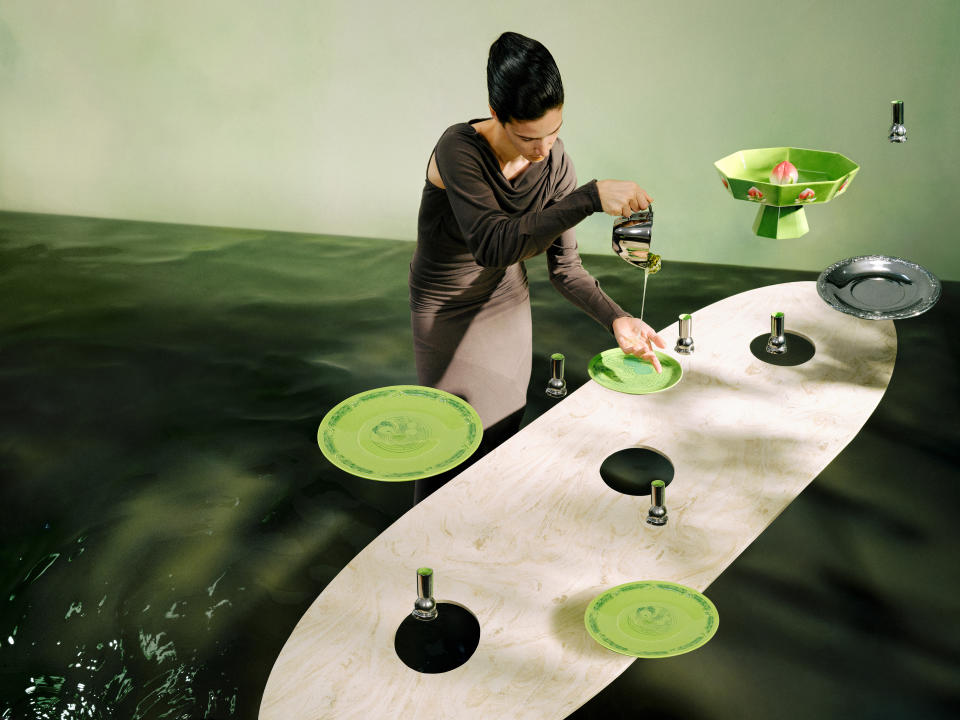
The brand is working on a new collaboration and plans to go global in the second half of 2024 with a few experiential pop-ups. Trademark paperwork in the European Union and the U.K. is already underway.
Wang hopes to apply Xi Xing Le’s modern Chinese aesthetic to other categories, such as jewelry, in order to build the concept into a fully fledged lifestyle brand.
The process has already started. Last year Xi Xing Le teamed with Otola, a fragrance store and a restaurant in Aranya, a trendy resort town in Beidaihe outside of Beijing that’s been compared to New York’s Hamptons, for a playful pop-up with fragrances, candles and other necessities for a visually pleasing dining experience.
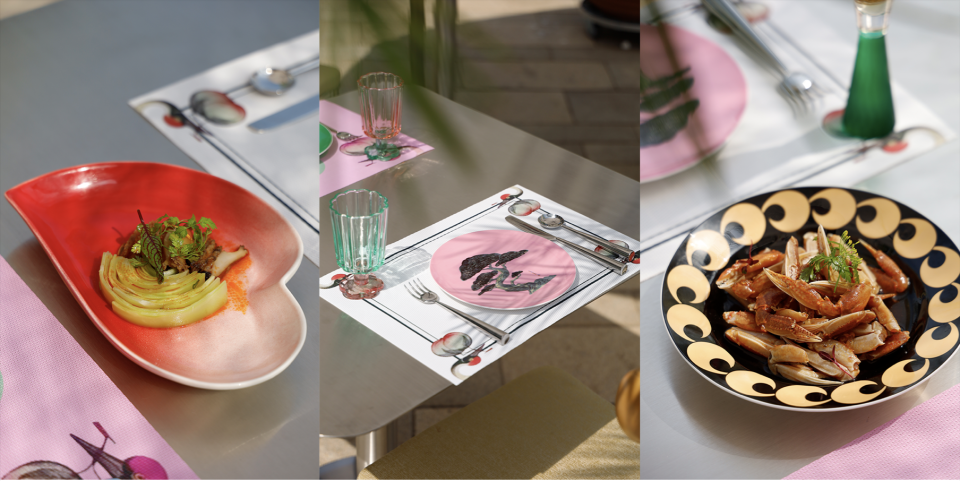
Wang grew up in Henan, home of the famous Chinese ceramics Jun ware, and has been studying the differences between porcelain styles since she was little.
The vibrant colors of Kwon-glazed ceramics are her favorite. The craftsmanship is well preserved in the Guangdong region, as well as in Hong Kong, Singapore and Malaysia, which enabled her to tap into an existing supply chain for Xi Xing Le.
Demand is surging, but china-making is unpredictable.
“It’s a time-consuming art form, and we are at the mercy of the weather when it comes to production. A few months ago, we had to abolish a whole bath as the color was wrong. It was caused by a different level of humidity in the kiln,” Wang says.
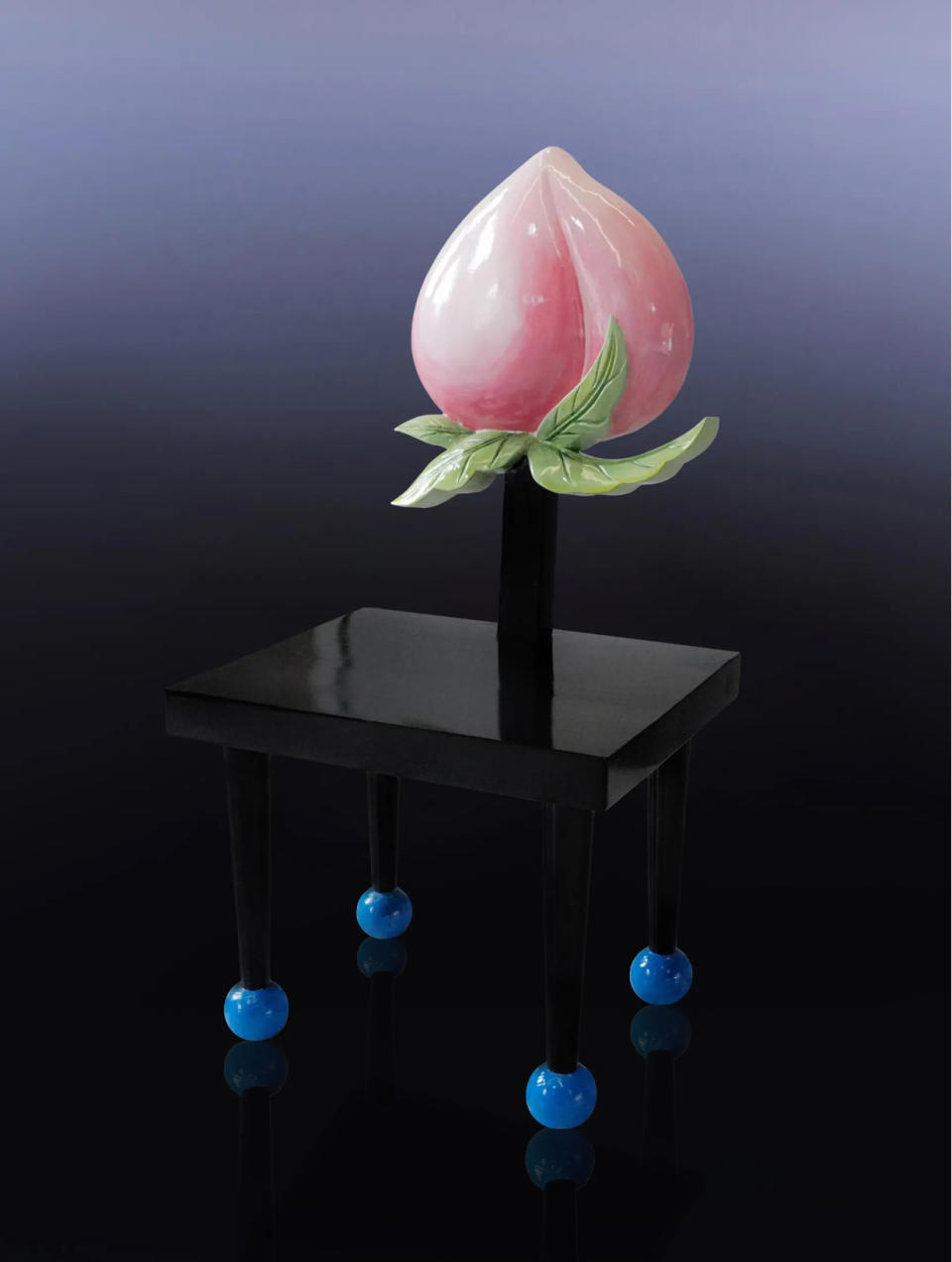
Despite fluctuations in cost, the duo wants to keep Xi Xing Le as accessible as possible, since the goal of the brand is to bring joy to everyday life. Prices start from 99 renminbi, or $13.70, for a tote bag; 599 renminbi, or $83, for a plate; 2,290 renminbi, or $316, for a Kwon-glazed porcelain lion, and 14,500 renminbi, or $2,000, for a hand-carved peach chair.

 Yahoo Lifestyle
Yahoo Lifestyle 
